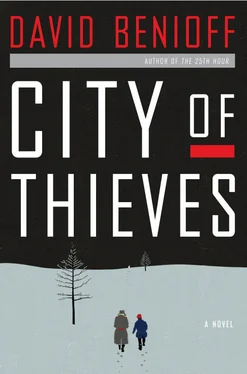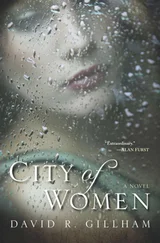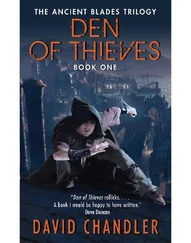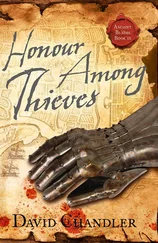“Mm,” said Kolya. I was hoping he would fall asleep, but he sounded alert, ready for a long conversation. “So was I. What did you study? Agriculture?”
“Why agriculture?”
“Aren’t you from a collective?”
“Do I look like I’m from a fucking collective? I’m from Archangel.”
“Ah, a northern girl. That explains everything.” He elbowed me in the side. “She really is Viking spawn. So you’re in the university up there? Studying wood sap and beavers?”
“Astronomy.”
“I’m a literature man, myself. Leningrad State.”
He rambled on about Shchedrin and Turgenev and their flaws for a few minutes before abruptly falling asleep, his long legs stretched out in front of him, forcing me to keep my own legs doubled up against my chest. The peasants began to drop off, too, though here and there I could still hear a whispered argument.
The heat from all the huddled bodies kept the shed warm enough. Before they shoved us inside I had managed to grab a few handfuls of snow to sip at in the darkness. I hadn’t eaten anything since the trapper’s cabin, where Kolya and I had shared a pocketful of walnuts we’d taken from the farmhouse, but a full day without food was nothing new. During the siege all of us in Piter became hunger experts, with different techniques to distract ourselves from our want. Back in my apartment in the Kirov I had spent many famished nights studying Tarrasch’s Three Hundred Chess Games . “Always put the rook behind the pawn,” he instructed his students. “Except when it is incorrect to do so.”
Without a chess book to study or a radio to listen to, I had to find another way to occupy my brain during the long wait for sleep. As the shed grew quieter, I became more and more aware of Vika’s body pressed up against mine. When she shifted her head to take a gulp of air from the gap in the wallboards, her hair brushed against my nose. She smelled like a wet dog. I had been raised to be finicky— my mother never tolerated a dirty dish in the sink, an unfolded towel in the bathroom, or an unmade bed. When we were little and she scrubbed us in the bathtub, her rough sponging left my skin raw. Sometimes, if my mother was getting dinner ready for a party, my father would bathe me, and it was like a reprieve from a whipping as he splashed warm water at me, distracted by whatever story he was telling. I loved “The Tale of Cross-eyed Lefty from Tula and the Steel Flea” and he would give it to me from memory time and again.
I was raised to be clean and it bothered me when others were not, when the Antokolsky twins had dirt under their nails or a teacher at school had a soup stain on his collar. But Vika’s wet dog smell did not offend me. All of us were slathered in grime by that point, of course—I must have stunk like week-old fish myself—but this wasn’t about being inured to foul odors. The tang off her body made me want to lick her clean.
“Do you think they’ll really take us to Estonia?” I asked her. Thinking about Vika had been a distraction from my hunger; now I needed a distraction from my distraction. I was not sitting in a comfortable position to have the thoughts I was having.
“I don’t know.”
“I’ve never been to Archangel. It must be very cold up there.”
In the silence of her nonanswer, I considered the possibility that I was a very boring person. Who else but a boring person would utter such meaningless trifles? If a brilliant pig, the prodigy of the barn-yard, spent his entire life learning Russian, and on finally becoming proficient the first words he heard were my own, he would wonder why he had wasted his best years when he could have been lolling in the mud, eating slop with the other dumb beasts.
“You studied astronomy?”
“Yes.”
“All right, so I have a question. There are billions of stars in the universe, right? We’re surrounded by stars. And all of them emit light, and the light travels forever. So why—”
“Why isn’t the sky bright at night?”
“Yes! You’ve thought about it, too?”
“People have been thinking about it for a long time.”
“Oh. I thought maybe I was the first.”
“No,” she said, and from the way she said it I knew she was smiling.
“So how come it’s dark at night?”
“The universe is expanding.”
“Really?”
“Mm.”
“No, I mean I knew the universe was expanding,” I lied. How could the universe expand? Wasn’t the universe everything? How does everything stretch out any farther? What does it stretch into? “I just don’t see how that explains the starlight.”
“It’s complicated,” she said. “Open your mouth.”
“What?”
“ Shh. Open your mouth.”
I did as I was told and she slipped a crust of rye bread through my lips. Unlike the tooth-breaking loaves given out as rations in Piter, this tasted like real bread, like caraway seeds and yeast and scalded milk.
“Good?”
“Yes.”
Piece by piece she fed me a full slice of the bread. When she was finished, I licked my lips and waited for more, even though I knew no more was coming.
“That’s it. I have to save the rest for tomorrow. Your friend will be hungry.”
“Thank you.”
She grunted in response and shifted her position, trying to get comfortable.
“His name is Kolya. Just so you know. And I’m Lev.”
She seemed to respond to only half the comments I made and this wasn’t one of them. I had hoped she would say, ‘I’m Vika,’ so I could reply, ‘Yes, I know. Short for Viktoriya, is it?’ For some reason I thought that would be a clever remark, even though every Vika is a Viktoriya.
I listened to her breathing, trying to judge whether or not she had fallen asleep. I tested her by whispering one last question.
“So if you were an astronomy student, I don’t really understand…. How did you become a sniper?”
“I started shooting people.”
That sounded like the end of the conversation to me, so I shut my mouth and let her sleep.
Later in the night I woke up when one of the old peasants on the other side of the shed had a coughing fit. Listening to him hacking up phlegm that had probably been inside his lungs since the reign of Alexander III, I realized that Vika had slipped against me in her sleep, her cheek resting on my shoulder. I could feel her chest rise and fall, the tick of the inhale, the tock of the exhale. For the rest of the night I stayed as still as I possibly could, trying not to disturb her, trying very hard to keep her close.
The Germans woke us by prying the nails out of the planks they had hammered over the doorway. Sunlight shot through the gaps in the wallboards, tiny spotlights shining on a greasy forehead, a leather boot with the sole curling away from the toe, the horn buttons of an old man’s coat.
Vika sat next to me, chewing on her fingernails. She chewed methodically, not an anxious person with a nervous habit but a butcher sharpening his knives. At some point in the night she had moved away from me and I hadn’t felt her leave. She looked up when she sensed I was watching and there was no trace of affection in her eyes. Any glimmer of intimacy I felt in the darkness was gone in the daylight.
The door opened, the Germans shouted at us to move, and the peasants disentangled themselves from one another. I saw the old man Edik press a gnarled forefinger against one nostril and blow a gob of snot to the floor, barely missing another man’s face.
“Ah,” grumbled Kolya, wrapping his scarf around his neck, “don’t you wish you grew up with our comrade farmers on a collective?”
As the prisoners began to file out the door, a man on the far side of the shed cried out. Those around him turned to see what had frightened him and soon they were anxiously whispering among themselves. From our corner all we could see were peasants’ backs. Kolya and I stood, curious about the commotion. Vika, uninterested, headed for the door.
Читать дальше












